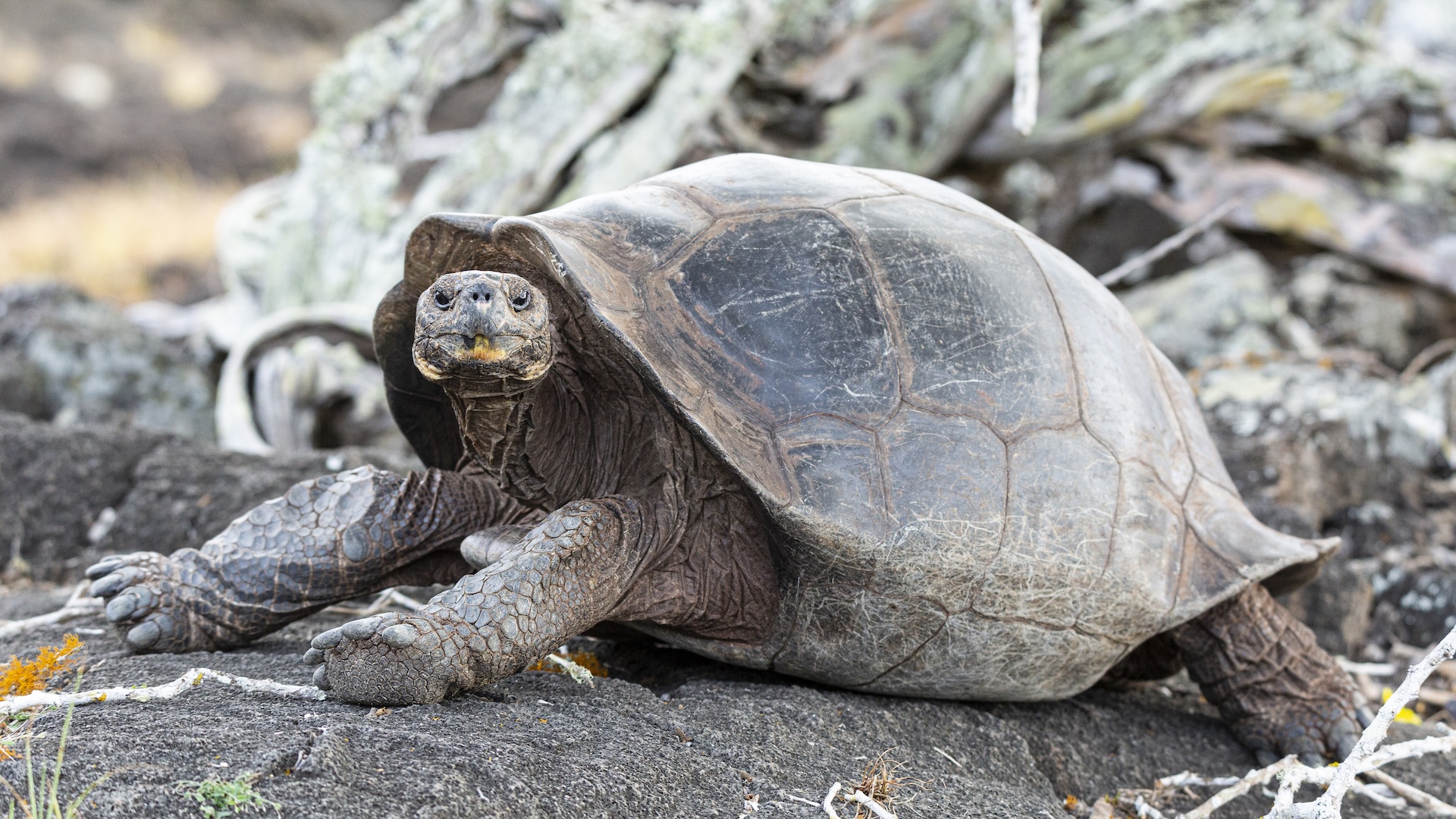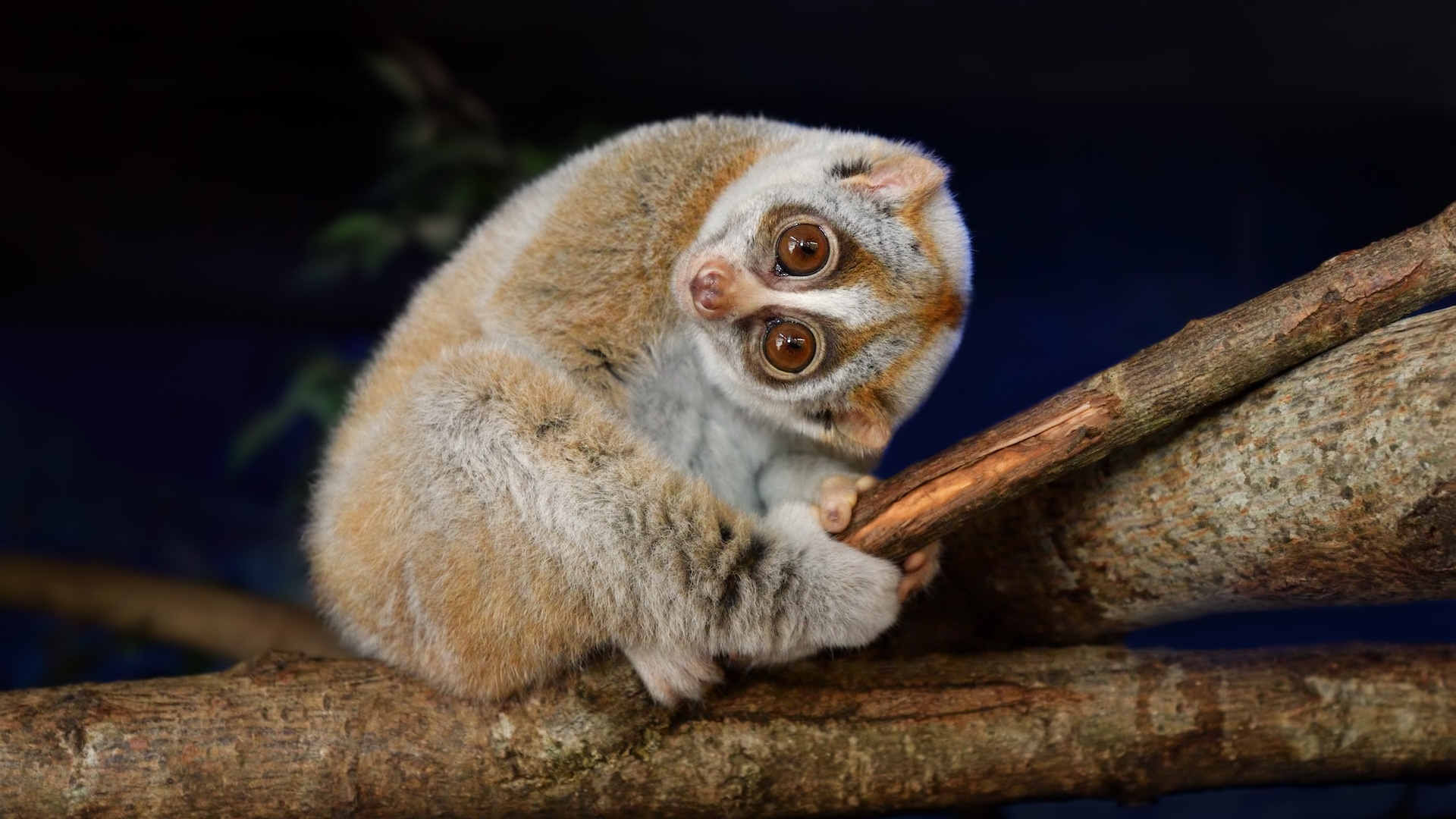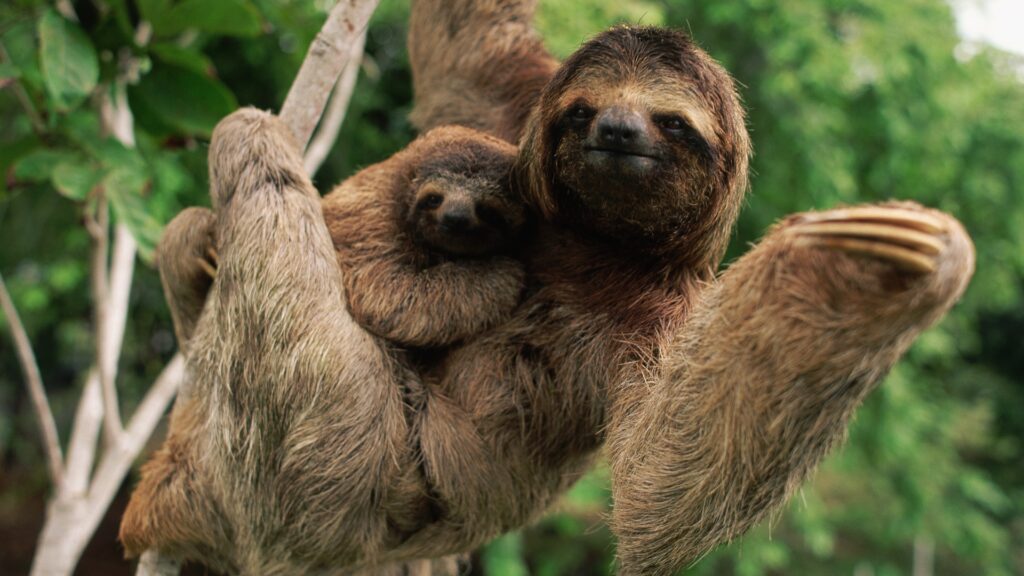Fast animals get plenty of attention for their incredible feats of speed. But what about animals that move at a slower pace?
“We definitely are programmed to think that speed is good,” said James Maclaine, senior curator of fish at the Natural History Museum in London. “For a lot of animals, that doesn’t make any sense to them at all.”
So what is the world’s slowest animal? And what does survival look like when speed isn’t part of your skill set?
Slow sea movers
These may seem like simple questions, but speed can be defined in different ways. One way to understand and compare animals’ speeds is to consider the time it takes them to cover a particular distance. In that regard, the slowest animal could be the sea anemone, which creeps along at just 4 to 6 inches (10 to 25 cm) per hour (0.00006 to 0.00015 mph), usually when it’s searching for a new abode; otherwise, it remains stationary.
Not far behind this largely stationary creature is the dwarf seahorse (Hippocampus zosterae), which is widely regarded as the slowest-swimming fish and one of the slowest animals in the world. Partly, that comes down to its upright swimming posture and its tiny dorsal fin, which has limited power to propel the seahorse through the water at that angle. “If you made it move, it would take it an hour to move a meter and a half [or 5 feet],” Maclaine told Live Science.
But this suits the seahorse quite well, as the creature spends most of its time tethered to its seagrass habitat by its long, prehensile tail, and eats tiny passing crustaceans. “Food comes to it, so that means it doesn’t need to be fast,” Maclaine explained. What’s more, these animals don’t have many predators because they’re well armored with defensive, bony plates and, therefore, have little need to escape.
Related: What is the fastest animal on Earth?
The only time these seahorses pick up their pace is when they’re ready to reproduce, Maclaine said. “This is really quite special, because they dance with each other … They sort of synchronize their movements.” The choreography can last hours, he added. “That courtship dance is the big seahorse movement.”
In the ocean’s deeper layers, the Greenland shark (Somniosus microcephalus) is a coldwater behemoth that can reach lengths of 24 feet (7.3 m). This ancient creature drifts along at an incredibly leisurely 2 mph 3 km/h. The Greenland shark lives in frigid waters where it scavenges on dead sea creatures. “You don’t need to move very fast for that, so it has slowed right down,” Maclaine said.

Locomotion on land
On land, the slowest-moving animal would likely be the banana slug, which moves at the extremely leisurely pace of 0.006 miles (0.0096 km) per hour, according to Jon Ablett, senior curator of molluscs at the Natural History Museum in London.
While it’s difficult to get definitive estimates on animal speeds, molluscs are notably slower than other animals, Ablett told Live Science in an email: “Some molluscs don’t move at all in their adult life, some bivalves are permanently sessile.” It’s not just that these animals are small, Ablett added. “They are slow moving in general — if you think of other groups like beetles, spiders or ants for example, they are small, often smaller than slugs and snails, but much faster.”
Despite this, there is a variety of speeds in the mollusc kingdom. For instance, the common garden snail (Cornu aspersum) glides along at a surprisingly speedy clip of 0.03 miles (0.048 km) per hour, Ablett said.
Other standout slow movers on land are the Galápagos giant tortoise (Chelonoidis niger), a reptile with a limited range of speed, which also takes a long time to cover a short distance. These reptiles saunter along at about 0.16 mph (0.26 km/h). To put that into perspective, humans, who are similar in size, walk at about 2.8 mph (4.5 km/h).
Meanwhile, mammals that live in trees are among the slowest animals around. The slow lorises (Nycticebus) are a group of diminutive primates that, as their name suggests, move around in the trees at a gradual, deliberate pace, cautiously swiveling around their large eyes to observe the surrounding environment as they go. While they can stay motionless for hours, these creatures move at about 1.1 mph (1.8 km/h).

Speed and size
There’s another way to measure speed, which is to factor in body size. Some biologists consider this a more accurate way to compare animals. Consider for example that a human can cover a much greater distance in one second than an ant can. Yet considering its tiny body, the ant is covering more distance and much faster, relative to its size, than we are.
A creature’s range of speed is another factor to think about when identifying the world’s slowest animal, said Rory Wilson, professor of aquatic biology and sustainable aquaculture at Swansea University in Wales. For example, some snakes may creep along almost imperceptibly but then rapidly lash out to ambush and catch their prey.
Factoring in these various traits, Wilson thinks that for the title of slowest animal there’s no contest for three-toed sloths (Bradypus).
“From the perspective of someone who studies animal movement in the broadest sense — not just getting from one tree to another, but also the speed of movement when they react to stimuli — it is really striking how slow sloths are,” Wilson told Live Science. These animals can hit speeds of 1 mph (1.6 km/h), but several estimates suggest it’s typically in the realm of just tens of meters.
In addition to taking a long time to cover little ground, sloths are worthy of the slowest-animal crown because all of their motions unfold at a glacial pace. “When I saw my first wild sloth, I couldn’t believe how slow it was,” Wilson said. “Everything is like tai chi.”
Like many other animals that live life at a relaxed tempo, sloths require some adaptations to compensate for the missing benefits of speed. Sloths have evolved to be masters of camouflage, because if they’re spotted by predators they have no ability to escape. These animals are also strikingly strong, with three times our human strength, giving them stability in the trees where nimbleness and speed might otherwise help keep them safely aloft.
The sloths’ unhurried pace is also connected to a slow metabolism that allows them to survive on small amounts of energy-poor food. It can take them days to digest their diet of leaves, and they descend from the trees just once a week to defecate.
“The question is, why would they be that slow? What do they get out of it?” Wilson said. The simple answer is that speed requires power, and power demands energy, which can be difficult and expensive to acquire, Wilson said. Sloths have managed to circumvent that need by thriving on very little — and that means a life in the slow lane. “If your whole lifestyle is ‘I’m chilling so I don’t need to eat much, I can eat rather poor quality food so I can digest it over days instead of hours, the energy return is very slow, and that’s OK because I’m very slow’ — it all works out extremely well,” Wilson explained.
